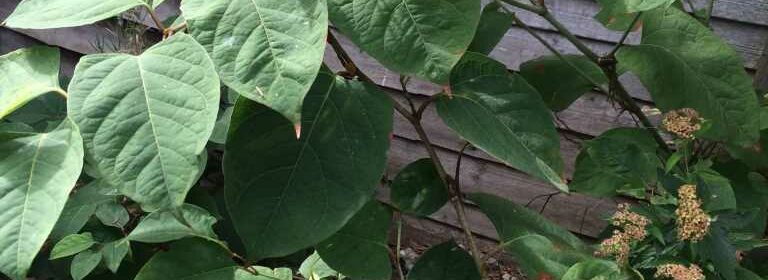My garden was ruined by huge weeds and slashed the price of my home – now I've sued council and WON £300k… here's how | The Sun

A HOUSEHOLDER has won thousands after suing the council over weeds that crept into his garden from council land.
Marc Davies, 38, was left fuming after the "pernicious" Japanese knotweed spread from Bridgend County Borough Council land – a former railway line – into the garden of his house in South Wales.
The engineer argued the weed had harmed hisSouth Wales property's value as he wasn't able to install a shed or conservatory in his garden.
Japanese knotweed is notorious for its tendency to spread, and the process of neutralising its effect can be cumbersome and expensive.
Davies was initially denied damages for the inconvenience the weed has caused.
Following an appeal to the decision, Davies has successfully had the outcome overruled – as senior judges ruled that homeowners have the right to claim damages for prolonged interference with a property's potential value increase.
read more news
Last posts of trans teen, 16, before being knifed to death in ‘targeted attack’
British war planes on standby to shoot down Chinese spy balloons, PM says
Mr Davies was awarded £4,900, but the case will cost the council about £300,000 in legal fees.
Knotweed specialist barrister Tom Carter, who represented Mr Davies at the Court of Appeal, reflected on the ruling as an "important" decision for those who find themselves in similar predicaments.
He said: “It confirms that a homeowner who suffers a loss in the value of their home from the stigma left by Japanese knotweed even after it has been treated can recover damages for that loss".
"When selling your home, you have to declare whether it is affected by Japanese knotweed.
Most read in Property

Fury as landlord puts home for rent – but you must provide basic feature YOURSELF

My £238k newbuild is a nightmare – my garden floods & my son can't play outside

Thousands set to pay no council tax later this year – are you eligible?

NatWest makes big change to mortgages – and it's good news for customers
"If the Court of Appeal had decided against the claimant, it would have meant that hundreds of homeowners would have no remedy when buyers pulled out or made reduced offers and they would be left out of pocket.”
Davies purchased the property in Nant-y-moel in 2004, but was oblivious to the type of plant growing on the neighbouring land.
However, in 2017, he became concerned when knotweed roots – called rhizomes – began growing underneath his garden.
The council began tackling the knotweed with a "reasonable and effective treatment programme" from 2018.
The process has inflicted a lot of stress on Davies.
He said: "Knowledge of having Japanese knotweed at the boundary of my property caused me immense distress."
"I felt helpless because it was the roots that had encroached under my land, and although Japanese knotweed was touching my boundary I could not physically see its presence on my land."
He sued for damages for the "residual diminution" in value of his property – the reduction in value which still remained even after the invasion had been treated.
Citing "residual diminution", Davies sued the council for damaging his value's property, despite the council implementing its treatment programme.
At the county court, Judge Andrew Fouracre found the council had caused a "nuisance" affecting Mr Davies' enjoyment of his property, but rejected the claim for a damages payout for the reduction in value of his house caused by the stigma of knotweed invasion.
Ruling on the case, appeal judge Lord Justice Birrs – sitting with Lord Justice Snowden and Lord Justice Baker – said the diminution in value was "consequential on the nuisance" and there was no law stating that "consequential damage to the claimant's economic interests is irrecoverable."
He added: "Once that natural hazard is present in the claimant's land – to a non-trivial extent – the claimant's quiet enjoyment or use of it, or putting it another way the land's amenity value, has been diminished.
"For the purposes of the elements of the tort of nuisance, that amounts to damage and it is the result of a physical interference.
"If consequential residual diminution in value can be proved, damages on that basis can be recovered.
"They are not pure economic loss because of the physical manner in which they have been caused."
Read More on The Sun
Job with £460k salary & FREE 4-bed house & no one wants to do it
I moved into a SKIP to save money on rent – it costs just £50 a month
Source: Read Full Article





